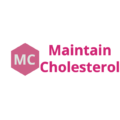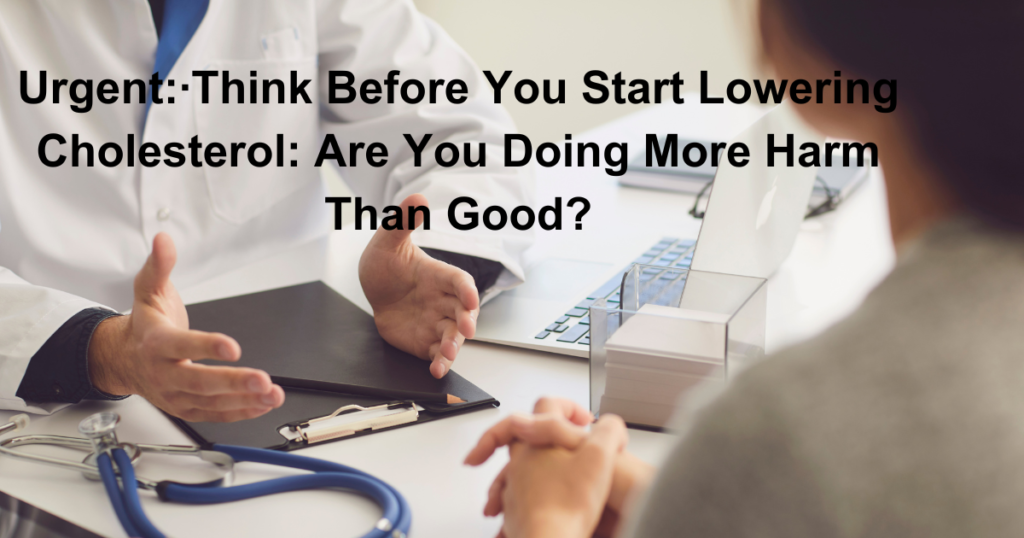Table of Contents
Introduction
Before you start lowering cholesterol, have you ever thought about how your cholesterol lowering method is going to help you improve your heart health? Lowering cholesterol is a very common word nowadays. You may be the one who is having high blood cholesterol levels, plaque in arteries, or heart disease symptoms. The doctor must have prescribed some medication to lower your cholesterol such as statins. Or alternatively, you are following some other methods to reduce your risk of heart disease.
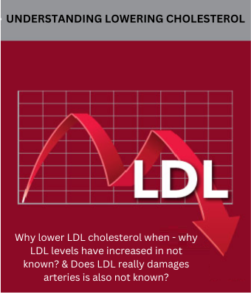 Will it completely reverse heart disease or partially? All methods are not the same. Their results vary from method to method. Is lowering cholesterol the right method to reverse heart disease or not? It may not be the right method to prevent or reverse heart disease. Therefore, I asked you to think before you start lowering cholesterol. Spend some time understanding the relationship between LDL cholesterol and heart disease. Why the rate of heart disease is increasing every year? Why athletes as well as young people are getting heart attack? Is there any flaw in the method? If that were the correct method then why the no of people suffering from heart disease is increasing every year.
Will it completely reverse heart disease or partially? All methods are not the same. Their results vary from method to method. Is lowering cholesterol the right method to reverse heart disease or not? It may not be the right method to prevent or reverse heart disease. Therefore, I asked you to think before you start lowering cholesterol. Spend some time understanding the relationship between LDL cholesterol and heart disease. Why the rate of heart disease is increasing every year? Why athletes as well as young people are getting heart attack? Is there any flaw in the method? If that were the correct method then why the no of people suffering from heart disease is increasing every year.
Cholesterol & Heart Disease Problems in India
Statistics of cholesterol problems in India
According to the World Health Organization, an estimated 270 million people in India have high cholesterol. This number is expected to rise to 310 million by 2025. High cholesterol is a major risk factor for heart disease, stroke, and other chronic diseases. [ Ref 1]
The WHO report also states that high cholesterol is more common in men than women, and in people who are overweight or obese. It is also more common in people with diabetes, high blood pressure, and a family history of heart disease.
There are very few epidemiologcal studies of dyslipidemias in India. [Ref3]. The pan-India averages (mg/dl) were: total cholesterol 176.7 ± 42.1 mg/dl, LDL cholesterol 110.5 ± 34.0 mg/dl, HDL cholesterol 43.2 ± 11.7 mg/dl, non-HDL cholesterol 133.5 ± 41.3 mg/dl and triglycerides 162.3 ± 106.7 mg/dl.
Statistics of heart disease in India
According to the World Health Organization (WHO), an estimated 2.67 crore (26.7 million) people in India suffer from heart disease. This number is expected to rise to 3.32 crore (33.2 million) by 2030. Heart disease is the leading cause of death in India, accounting for 25% of all deaths.[ Ref 2]
Cases of high cholesterol, heart disease and diabetes in India are increasing every year. There is no sign of controlling these chronic diseases. This trend will continue till the underlying cause is found and a solution is found
According to a study published in Indian Heart Journal, increase in cardiovascular risk and hypercholesterolemia is associated with increase in adverse lifestyles such as greater smoking and tobacco use, change in nutritional habits with greater intake of unhealthy diets and increasing sedentary lifestyle.[ref 3].
There are a number of factors that contribute to high cholesterol in India, including:
- Diet: The Indian diet is high in saturated fat and trans fat, both of which can raise cholesterol levels.
- Lifestyle: People in India are more likely to be overweight or obese, which is another risk factor for high cholesterol.
- Genetics: Some people are more likely to have high cholesterol due to their genes.
- Tobacco Use: Smoking and chewing tobacco causes high cholesterol, heart disease and cancer
Why I am writing this article on think before you start lowering cholesterol.
I myself had heart disease and being a researcher in the pharmaceutical field I researched all the scientific literature and found that the underlying cause is known. I deeply thought why the present methods do not provide a complete solution to the health problem.
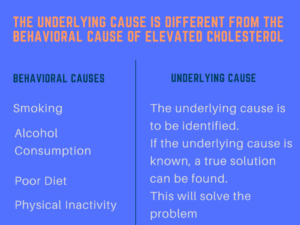
The underlying cause is different from the behavioral cause of elevated cholesterol. Just knowing this difference will help you take a proper decision.
The underlying cause will be only one. It will depend upon the function of the cells as each cell is independent living machine.
Behaviors are many. Out of the four main behavioral risk factors it is difficult to say which risk factor has actually caused high cholesterol problem. Anyway all these risk factors cause an elevation of LDL cholesterol.
My purpose is to unravel the underlying cause of high LLD / heart disease in a step wise manner. Once the underlying cause and solution is known you can lead a healthy life.
You can take care of your health yourself. Self-care is the only solution to better health. Therefore, I am writing this article to think before you start any of the lipid lowering strategies. It applies to all other chronic diseases.
Through my blog article series, I want to share my knowledge so that it will benefit all of you and the entire humanity.
Why do doctors ask you to lower cholesterol?
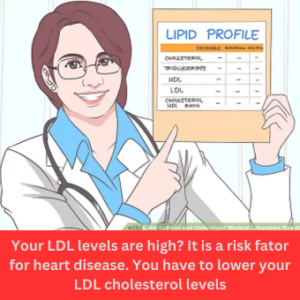
The first thing to think about is “why you are asked to lower ldl? When you approach the doctor with complaints like fatigue, chest pain, tiredness, heart failure he may ask for a blood test. The blood tests may show your lipid profile. You may have:
Total cholesterol in the higher range, with LDL cholesterol slightly more than normal with no symptoms of heart disease;
Your LDL cholesterol levels are on the higher side, and HDL cholesterol is lower than normal
You have high LDL cholesterol levels and also have symptoms of heart disease.
If a person is having high cholesterol levels, then it is believed that having high cholesterol is a risk factor for heart disease. Patients who had heart attack, stroke or have symptoms of heart disease always have high serum blood cholesterol levels. Generally, the LDL levels are higher than 130 mg/dl and HDL levels are generally below normal.
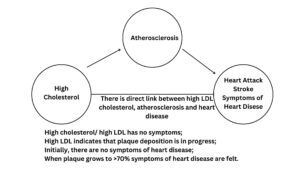
There is a relation between high cholesterol and heart disease and atherosclerosis:
- When cholesterol levels are high, in the initial stages, there are no symptoms felt by the patient.
- When cholesterol levels are high the process of atherosclerosis is going on continuously.
- Initially, there are no symptoms of heart disease.
- The plaque build-up slowly increases. Then you may start feeling symptoms like tiredness, fatigue, difficulty in climbing stairs, and so on. When the plaque buildup reaches up to 70% and above, the symptoms of heart disease are felt.
Thus high LDL levels in the blood is a risk factor for heart disease. Therefore, the doctor asks you to lower your cholesterol levels. If a lipid profile test shows that your blood cholesterol levels are abnormal your doctor prescribes some medication. The most preferred treatment followed by doctors at present is the use of statin drugs. Statin drugs inhibit the synthesis of cholesterol.
Is the doctor’s decision correct?
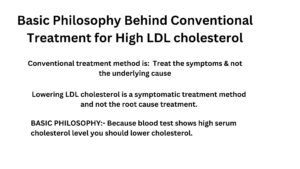
Conventional medicine’s approach is to treat the symptoms and not the underlying cause.
High cholesterol is a form of indicator for atherosclerosis and heart disease.
The lipid profile test shows that your cholesterol levels are high. So, according to conventional medicine what needs to be done? Simple, lower your serum cholesterol levels.
Therefore they should be lowered. If you lower your cholesterol, then your risk of heart disease is reduced. According to this logic doctor’s decision is right. It is up to us to follow his advice or not. They are well trained in diagnosis.
The real treatment is in understanding WHY serum cholesterol levels have increased.?
Additional methods people use to have healthy cholesterol
Once the patient is aware that his/hers cholesterol levels are high they also focus on other methods of bringing cholesterol levels down. Some of them are listed below:
- Eat foods that lower cholesterol;
- Eat low cholesterol diet;
- Avoid eating saturated fats;
- Follow specific diets like Ornish diet, Mediterrian diet, keto diet, vegan diet etc,.
- Some use supplements, and so on
Apart from this lifestyle changes are also suggested which are suggested below:
- Quit smoking
- Drink alcohol in moderation
- Exercise regularly
- Eat healthy diet
Of all these methods eating healthy diet is the most important factor. Our health depends upon what we eat.
Facts present in front of us to think on cholesterol treatment strategies:
There is a relationship between abnormal blood cholesterol levels and heart disease. This is a fact that we cannot ignore. Lipid profile shows elevated LDL levels and most of the time HDL levels are less than normal. Some people may get heart attack in spite of having normal cholesterol levels. People who smoke, consume alcohol, who are obese and diabetic also show elevated LDL levels. Since LDL is present in the deposit it is called as bad cholesterol and HDL is called as good cholesterol.
i) What happens if LDL levels are high?
Conventional medicine assumes that, If LDL LEVELS are high then it (LDL) MAY deposit in the arteries and form a plaque.
Think for a while on the first statement “when ldl levels are high” or “if ldl levels are high” then………. and ” LDL MAY DEPOSIT in arteries“…………. these statements like..
Words like If high and may deposit indicate uncertainty in the statement.
Another statement, the second statement, is also worth pondering on, which is discussed in the next paragraph.
ii) Why excess LDL deposits in arteries?
Conventional medicine explains that, “Excess LDL floating in the blood damages the inner endothelial layer” in the arteries. When the endothelial layer is damaged, excess LDL cholesterol deposits in the arteries forming a plaque.
They have tried to explain why LDL cholesterol, if serum LDL levels are higher, deposits in arteries. There is no convincing explanation available to show conclusively that excess LDL damages the endothelial layer.
Summarizing the thoughts on think before starting lowering cholesterol
It is a fact that;
- LDL cholesterol is present in the arteries of patients suffering from heart disease and
- The blood serum levels of LDL are high in patients suffering from heart disease
- The process of plaque deposition(atherosclerosis) is continuously going on as far as blood cholesterol levels are higher.
Following are the unexplained questions that crop in:
- Why LDL cholesterol levels have increased in the first place?
- “How excess LDL damages the endothelial layer of the arteries? … if it really damages
- Why normal LDL cholesterol does not damage the endothelial layer of arteries?
- Why LDL does not deposit in arteries when cholesterol levels are normal?
- Why LDL deposits only in arteries and not in veins?
- Is the artery (endothelial layer) damaged first, then the cholesterol levels increase, and start the process of atherosclerosis.
- Does the plaque deposit really contains LDL cholesterol or some other form of lipid deposit, other than LDL? It is likely that the deposit may contain some other cholesterol containing matter.
- Are there any other blood factors which are risk factors for heart disease?
- Why HDL levels are lower then normal when cholesterol levels are high?
- Why people having normal LDL levels also get heart attack?
Task before us
If you are suffering from diabetes, heart disease, stroke, are obese and having high cholesterol levels, then I request you to read this article carefully. It will open your eyes. There are several questions that have to be answered. The answers for the above has to be found. I will try to find answers to above queries one by one.
Now you must have understood why I asked you to think before you start lowering cholesterol. Be educated on this topic. I will show you that lowering cholesterol is very easy.
In the next article I will discuss about arterial plaque formation when cholesterol levels are normal.
References
1.0 World Health Organization. (2020, March 12). Noncommunicable diseases. Retrieved March 8, 2023, from https://www.who.int/news-room/fact-sheets/detail/noncommunicable-diseases
2.0 World Health Organization. (2020, March 12). Cardiovascular diseases. Retrieved March 8, 2023, from https://www.who.int/news-room/fact-sheets/detail/cardiovascular-disease
3.0 Recent trends in epidemiology of dyslipidemias in India — https://www.ncbi.nlm.nih.gov/pmc/articles/PMC5485409/
